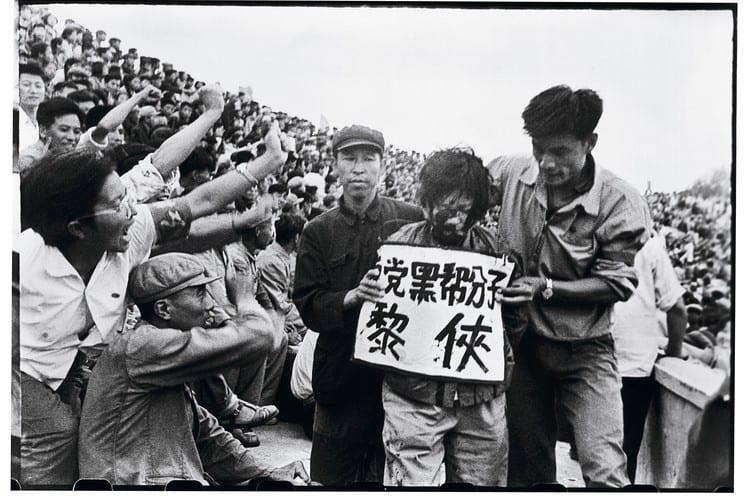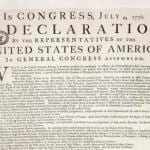Helen Raleigh is a Chinese-American who grew up under Communism and who has become a prominent conservative writer. She sees parallels between the current American “cultural revolution” that we have been discussing and Mao Tse Tung’s “Great Proletarian Cultural Revolution.”
From her article in the Federalist, “If Washington and What He Stood For Can Be Condemned and Humiliated, None of You Are Safe“:
In an editorial for the People’s Daily, Mao’s propaganda chief, Chen Boda, explained the aims of this proletarian cultural revolution:
…not only at demolishing all the old ideology and culture and all the old customs and habits, which, fostered by the exploiting classes, have poisoned the minds of the people for thousands of years, but also at creating and fostering among the masses an entirely new ideology and culture and entirely new customs and habits — those of the proletariat.
Following this rallying cry, a campaign to get rid of the “four olds” — old customs, old culture, old habits, and old ideas — was launched across on college campuses in Beijing. Professors and leaders with western educational backgrounds, as well as those who demonstrated any traditional Chinese cultural influence, were quickly denounced and publicly humiliated as “monsters and demons” by their enthusiastic students.
She describes how the Red Guard in 1966 targeted the father of Chinese culture Confucius, tearing down his monuments, destroying his tomb, and burning his writings.
In retrospect, that November marked the beginning of the darkest decade in China’s history, during which many more places would be destroyed, many more books burned, and many more families torn apart after children denounced their parents and spouses denounced each other in a desperate attempt to survive by demonstrating “ideological purity.” An estimated two million Chinese were either executed or driven to suicide as a result. Millions more suffered malnutrition due to famine fueled by a broken economy. Only later would people finally come to realize that the Cultural Revolution not only destroyed the culture but also ruined the country.
History may not repeat itself exactly the same way, but it does rhyme. The destruction we’re witnessing in America today is beginning to resemble 1966 China more every day. . . .
Annihilation comes in many shapes and forms beyond the demolition of physical objects. More people who refuse to conform to the mob’s demand will lose their jobs and see their lives be ruined. The mob won’t stop until they destroy everything we hold dear and attain complete power over us.
Eric Kaufmann, whose article The Great Awokening and the Second American Revolution we have been discussing this week (see here and here and here), also sees parallels between today’s progressives and the Red Guard. He too discusses “The Four Olds”:
The past is raked over for imperfections as left-modernist ideologues render the most grievance-based interpretation of history imaginable. This wins plaudits from movement leaders on social media, much as youthful Red Guards sought to impress Mao and his commissars with their crusading zeal in destroying Confucius’s tomb or sticking up posters denouncing officials. In 1960s China, these zealots tried to outdo each other by attacking the four “olds”: Old Culture, Old Customs, Old Habits, and Old Ideas. Priceless historic monuments and manuscripts were destroyed in an orgy of vandalism designed to wipe the collective mind clean. Those who observed old customs or read historic poetry, or whose families had been merchants in the Kuomintang era, were deemed bourgeois “capitalist roaders.”
This “year zero” mentality is common among heaven-on-Earth utopian movements and corresponds to a view that people are slates that can be wiped clean and restored to their pristine, blank condition—their souls must be purified. As with the social construction of “racism” and harm, they have a point. Propaganda can alter people’s sense of reality to some degree. But not everyone can ignore the evidence that is before their eyes, which is why the Maoist or Soviet experiments ultimately failed. While social construction can shape people’s ideological beliefs, as we have seen, it is much less effective at altering scientific facts, which hit people between the eyes.
Photo by Elekes Andor, “Cultural Revolution” [Denouncing of Local Leaders by Red Guard, 1966] via Flickr, Creative Commons 2.0 License














